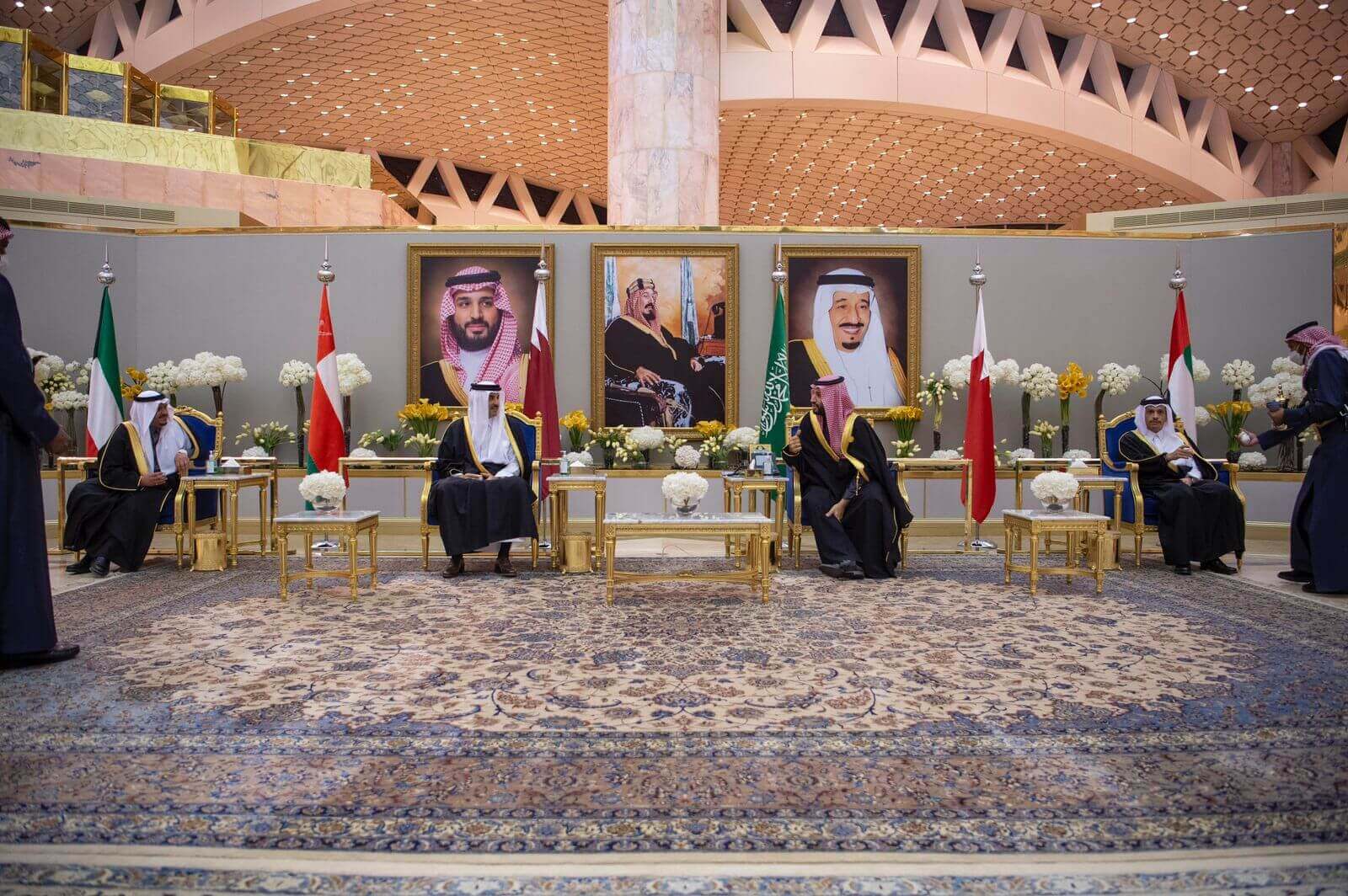On Tuesday, leaders of the members of the Gulf Cooperation Council (GCC)—Saudi Arabia, the United Arab Emirates (UAE), Bahrain, Oman, Qatar, and Kuwait—met in Riyadh for the 42nd annual summit of the grouping. The main agenda of the meeting was the strengthening of security and strategic ties amid steps taken by Iran to accelerate its nuclear programme and the ongoing Yemen war.
Saudi Crown Prince Mohammed bin Salman (MBS) called for an “effective and serious” approach to Iran’s ballistic missile and nuclear programme. He urged Iran to seize the “diplomatic opportunity” presented to it by the resumption of nuclear negotiations in Vienna to restore the 2015 nuclear deal.
The GCC also “deplored Iran’s continued failure to fulfill its commitments and transgressions in raising uranium enrichment rates beyond the need for peaceful uses.” In this respect, it called on Iran to “reverse this step and cooperate fully with the International Atomic Energy Agency.”
MBS also stated that Riyadh is willing to end the conflict with Tehran and called on the Iranian government to take ongoing bilateral talks seriously. He noted that resolving the conflict through dialogue is the best path forward.
Simultaneously, the GCC said that any threats to the region’s stability will be met with a joint show of force. It invoked Article 2 of the Mutual Defence Agreement between the GCC members to stress that “any attack on any of them [GCC members] is an attack on them all.” The GCC also stressed the “commitment of member states to work collectively to confront all threats and challenges.”
As the #GCCSummit is held in #Riyadh today and following the official visits of the HRH Crown Prince to the GCC member states; let’s remember the history of the Gulf Cooperation Council. pic.twitter.com/Eo9FrvVldw
— CIC Saudi Arabia (@CICSaudi) December 14, 2021
Saudi Arabia and Iran have had long-standing tensions, which spiralled further out of control in 2016 when the Saudi embassy in Tehran was attacked by Iranian mobs over Saudi Arabia’s execution of a prominent Shia cleric. Following the attacks, the Kingdom officially broke diplomatic ties with the Islamic Republic.
Since then, both sides have clashed numerous times, especially in war-torn Yemen. Saudi Arabia has led an international coalition in the country that has launched airstrikes against the Iran-backed Houthi rebels, who have frequently targeted Saudi energy infrastructure, including several Saudi Aramco facilities.
Saudi Arabia has also expressed concerns about Tehran’s nuclear programme, arguing that a nuclear deal with Iran will strengthen its capacity to pursue an aggressive policy in the region, which includes supporting proxies in Yemen, Iraq, Syria, and Lebanon. The GCC countries have aligned with Saudi Arabia and collectively view Iranian aggression as a threat to regional stability.
The Council also stressed its “support” to Yemen’s internationally recognised government led by President-in-exile Abdurabbuh Mansur Hadi. It called for “preserving Yemen’s unity, territorial integrity, stability, and sovereignty” and greater cooperation with the United States and the United Nations to reach a “political solution” to the Yemeni crisis.
Furthermore, the leaders condemned “terrorist attacks” targeting civilians and residential areas in Marib, referring to the large-scale offensive mounted by the Houthis to take control of Marib from coalition-backed forces. Over the last few weeks, the battle for Marib has dramatically escalated as both sides have begun to engage in intense tit-for-tat attacks. The most recent incident involved the Houthis destroying 20 military vehicles of the Saudi-led coalition, which retaliated by launching airstrikes that killed 210 on Tuesday.
The unrest in Yemen began in 2014 when a civil war broke out between the Houthis and the internationally recognised Hadi government. In 2015, a Saudi-led coalition launched a major offensive in Yemen by conducting airstrikes on Houthi-controlled areas. Since then, there has been no end in sight to the war and international efforts to halt the fighting have mostly failed.
The Council also “condemned Iran’s continued support for terrorists” in Iraq, Lebanon, and Syria and called on Tehran to “stop supporting terrorism and inciting sectarian strife in the GCC states.” Iran’s actions “threaten Arab national security, destabilize the region, and impede the work of the international coalition to combat ISIS,” it posited.
In addition, the GCC welcomed the progress made in improving ties with Qatar and “affirmed the contents of the Al-Ula Declaration,” which was signed in January by GCC members to end the dispute with Qatar. In 2017, Saudi Arabia, along with the UAE, Bahrain, and Egypt, cut ties with Qatar, accusing Doha of supporting radical Islamist groups in the region and having warm relations with Iran.
Lastly, the members discussed the Israeli-Palestinian conflict and expressed support for the “establishment of an independent Palestinian state with East Jerusalem as its capital.” They also talked about ways to strengthen economic, trade, and cultural ties and expressed their commitment to tackling the worsening climate crisis in the Middle East.

